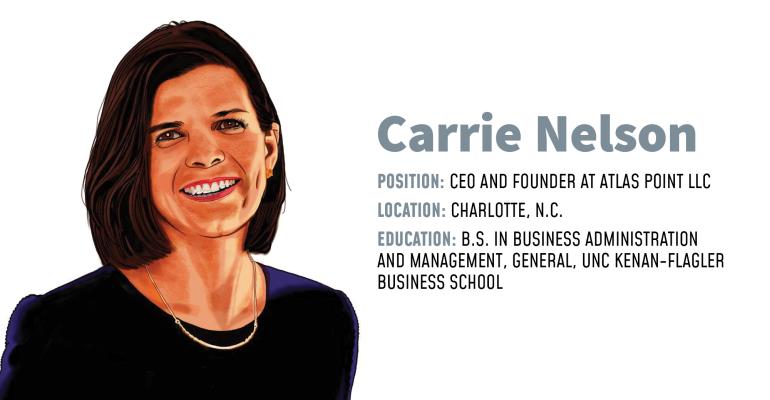Carrie Nelson’s journey into the touchy-feely field of behavioral finance and advisor client relationships began in the most unlikely of places—the cold, “kind of creepy” (her words) world of hard data and analytics.
Her career started focusing largely on lending data with Ernst & Young before taking a position at credit giant Experian. A move into consulting followed, as did a return to Ernst & Young (now EY), this time with a new concentration on data in wealth management.
 “The move to the more high-touch business of wealth management was eye opening.” Nelson says. “There was a general resistance to data and analytics because of the more personal nature of the relationships. ‘What can data tell me about my clients that I don’t already know?’” She also cites the aforementioned “creepy factor.”
“The move to the more high-touch business of wealth management was eye opening.” Nelson says. “There was a general resistance to data and analytics because of the more personal nature of the relationships. ‘What can data tell me about my clients that I don’t already know?’” She also cites the aforementioned “creepy factor.”
After a subsequent move to Edward Jones, Nelson began studying character science largely as a means to pull top executives out of stress and empower them to influence change in their own companies. However, one question rang in the back of her mind: “Can I apply this to advisors?”
“The industry is increasingly focusing on AI.” Nelson says. “But I think that replacing advisors is an overcorrection—people want to work with humans. AI is also more powerful and predictive when you include behavioral data alongside transactional.”
Nelson founded Atlas Point with the goal of creating an AI-powered platform to help advisors integrate behavioral data while supporting human relationships and bringing clients and advisors closer together. The goal is to recognize the value of emotional intelligence and marry that with AI.
She began by—wait for it—gathering data. Interviewing a wide range of advisors across the country, both in terms of location and AUM, Nelson found the same problems kept cropping up over and over, one of which was a difficulty by advisors in comprehending and implementing behavioral finance into their practices.
“Behavioral finance can be very academic and unintuitive to actually apply in practice,” Nelson says. “Advisors would express their discomfort with it and lament ‘Now it’s on the CFP exam—how do I do it?’”
This complaint dovetailed well with feedback she was getting from interviewing investors—a whole lot of, “My financial professional doesn’t really know me”—an issue she also personally experienced. “My own financial professional talked largely to my husband—it’s like, does he even know what I do?”
The entire Atlas Point enterprise anchors on client profiling, which is largely completed through surveys (at least initially). However, what began as a single survey for advisors to have clients fill out has evolved into an ecosystem of behavioral data and AI-powered tools, as well as educational materials, training programs and community support (and yes, even more surveys) to help advisors gather, familiarize themselves with, analyze and properly apply that data to client relationships.
“Instead of contacting every client at set intervals two to four times a year and running down a checklist, calling the right client at the right time with compelling and personal info both benefits the client more and helps forge a deeper and more meaningful relationship.”

